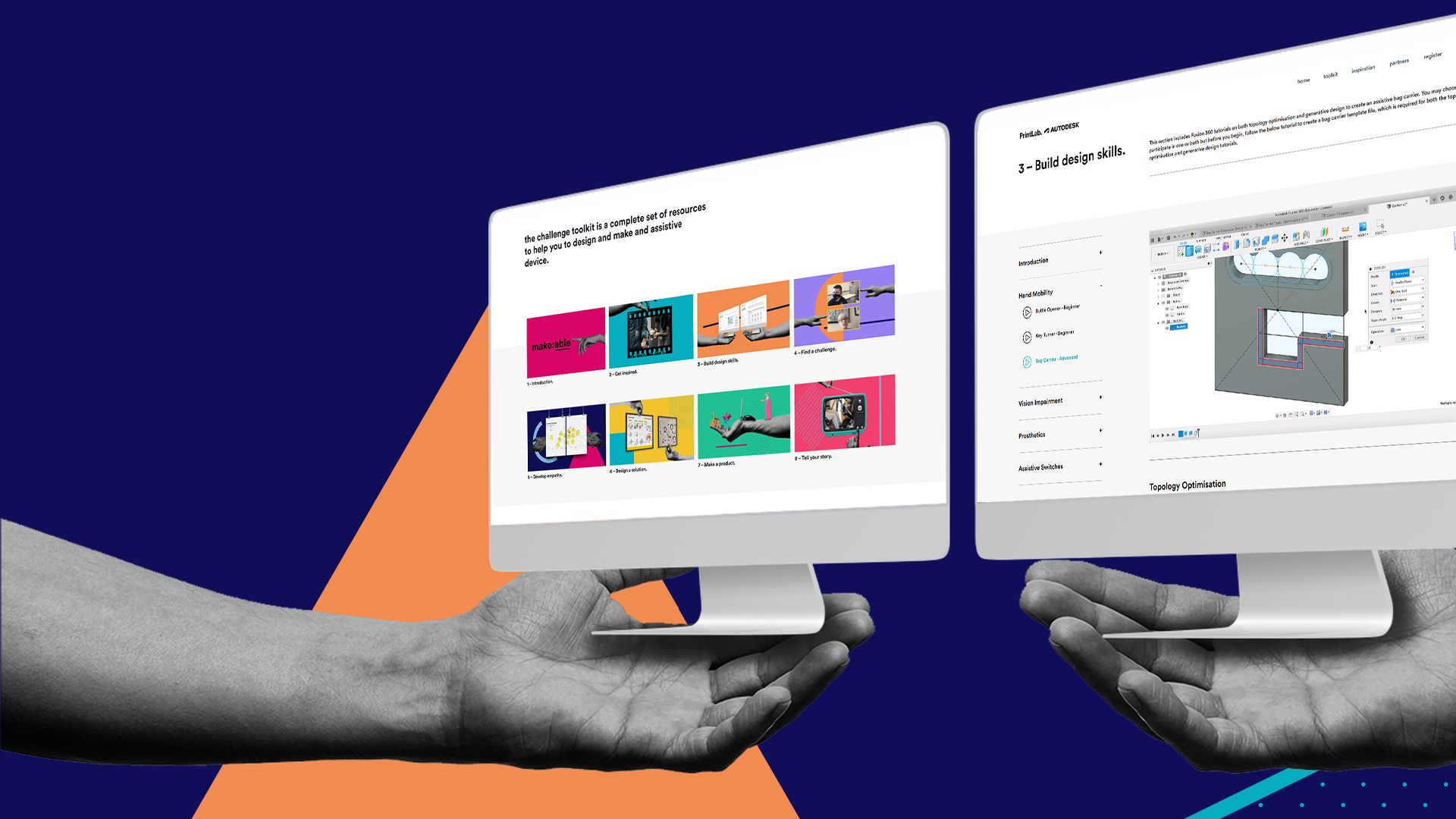PrintLab & Autodesk Launch Second Assistive Technology Design Challenge
**Press Release** 3D printing curriculum developer PrintLab (UK) and Autodesk have today launched the second iteration of their yearly assistive technology design challenge – make:able.

1st November 2021 • Make:able
The new and improved design challenge follows the success of the first make:able challenge launched in 2020, which saw over 17,000 student registrations across 72 countries and solutions such as a wheelchair stroller adapter being featured on national news platforms. The 2021 challenge brief has expanded from focusing on hand mobility devices to designing and making 3D printed devices to improve the lives of people with any disability or the elderly.
Going beyond a competition, make:able centres around a comprehensive online challenge toolkit, together with a teacher’s guide and lesson plans for educators. During their make:able journey, participants will work in teams and use the online toolkit to:
- Learn about disabilities, assistive technology and 3D printing from industry experts
- Gain creative inspiration from stories and example solutions
- Build technical 3D design skills in free Autodesk software
- Find a meaningful challenge in their local community or online
- Develop empathy for their end user using human-centred activities
- Identify opportunities and generate ideas with design-thinking methods
- Make, test and refine a 3D printed product through an iterative process
- Tell their story in a 2-4 minute video submission
In addition to the open disability brief, the 2 key updates to this year’s challenge include:
- An additional age category – over-18s, which welcomes university students, graduates, hobbyists and the general public to participate.
- Resources and tutorials developed in collaboration with a series of organisations who specialise in different areas of assistive technology including hand mobility, vision impairment, prosthetics and assistive switches.
Jason Yeung, Co-Founder of PrintLab spoke about the challenge by saying,
“The quality of last year’s submissions is evidence that young people have the empathy, creativity and technical skills to expand outside of the classroom and solve real-world challenges. This year, with the support of new resources and collaborations, we’re focusing on scale. Our aim is to scale up the number of participants, the number of open-source solutions created, and the number of end users impacted. We are extremely excited to once again facilitate and showcase the power of 3D printing for customised assistive technology”.
Steven Parkinson, Project Programme Manager at Autodesk Education Experiences added,
“The next generation of problem solvers embraced last year’s competition, demonstrating they’re themselves are an emerging disruptive force. Make:able provides a platform for educators that enables their students to immerse themselves in genuine real life problems, fuelled by design thinking strategies and powered by the latest technological tools. Make:able democratises the boundary between student and professional, providing an experience that young people will benefit from forever”.
The make:able challenge is open to students of all ages and can be run within design and technology or STEM lessons, after-school programmes, workshops or even as part of distance and remote learning strategies. Upon signing up to Make:able, educators will receive access to the challenge toolkit, together with a full teacher’s pack consisting of professional development resources, guidance and standards-aligned lesson plans for various timeframes, age groups and abilities. The general public is also invited to participate in the over 18 age category.
Entries will be judged by an expert panel following the submission deadline on the 1st May 2022 and a range of prizes including 3D printers will be delivered to winning teams.
For further information and to register you can visit http://www.makeablechallenge.com/.